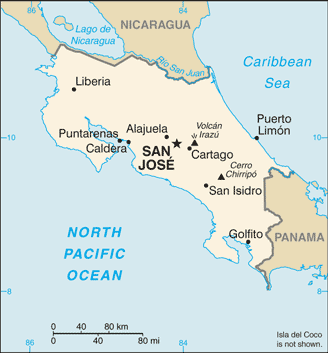The Ministry of Health reports the measles vaccination campaign in the country has completed its fourth week and 63% of the vaccines had been administered as of Jan. 11.
The country is carrying out a special vaccination for children between 15 months and under 10 years old at no cost, which is scheduled to end on February 8.

Since this campaign is in its fifth week, it is very important to remember the importance of parents or caregivers taking children between 15 months and under 10 years of age to the Ebais or Clinics in the CCSS, or even at a private level so that complete your campaign vaccination. Where coverages are lowest is in the age group between 5 and under 10 years, which is why these vaccination coverages need to be improved.
How contagious is measles? Answer: Very
According to PAHO data, as of November 30, 2018, 16,039 confirmed cases of measles, including 86 deaths, have been reported in 12 countries of the Region of the Americas: Antigua and Barbuda (1 case), Argentina (14 cases), Brazil (9,898 cases, including 13 deaths), Canada (27 cases), Chile (2 cases) Colombia (171 cases), Ecuador (19 cases), United States of America (220 cases), Guatemala (1 case), Mexico (5 cases) cases), Peru (38 cases) and the Bolivarian Republic of Venezuela (5,631 cases, including 73 deaths). Chile has joined the list of countries that reported confirmed cases of measles during 2018.
Measles in the United States 2018: 2nd most cases since 2000
Measles is a highly contagious viral disease that mainly affects children and is transmitted by small drops from the nose, mouth and throat of infected people. The initial symptoms, which usually appear between 8 and 12 days after infection, consist of high fever, runny nose, red eyes and small white spots on the inner side of the cheek. Several days later a bud appears on the skin that begins on the face and neck, and gradually spreads to the rest of the body.
Costa Rica: Health officials investigate Hepatitis A surge in Puntarenas
There is no specific treatment for measles, and most patients recover in 2 or 3 weeks. However, measles can cause serious complications, such as blindness, encephalitis, severe diarrhea, ear infections and pneumonia, especially in malnourished children and immunosuppressed patients.

